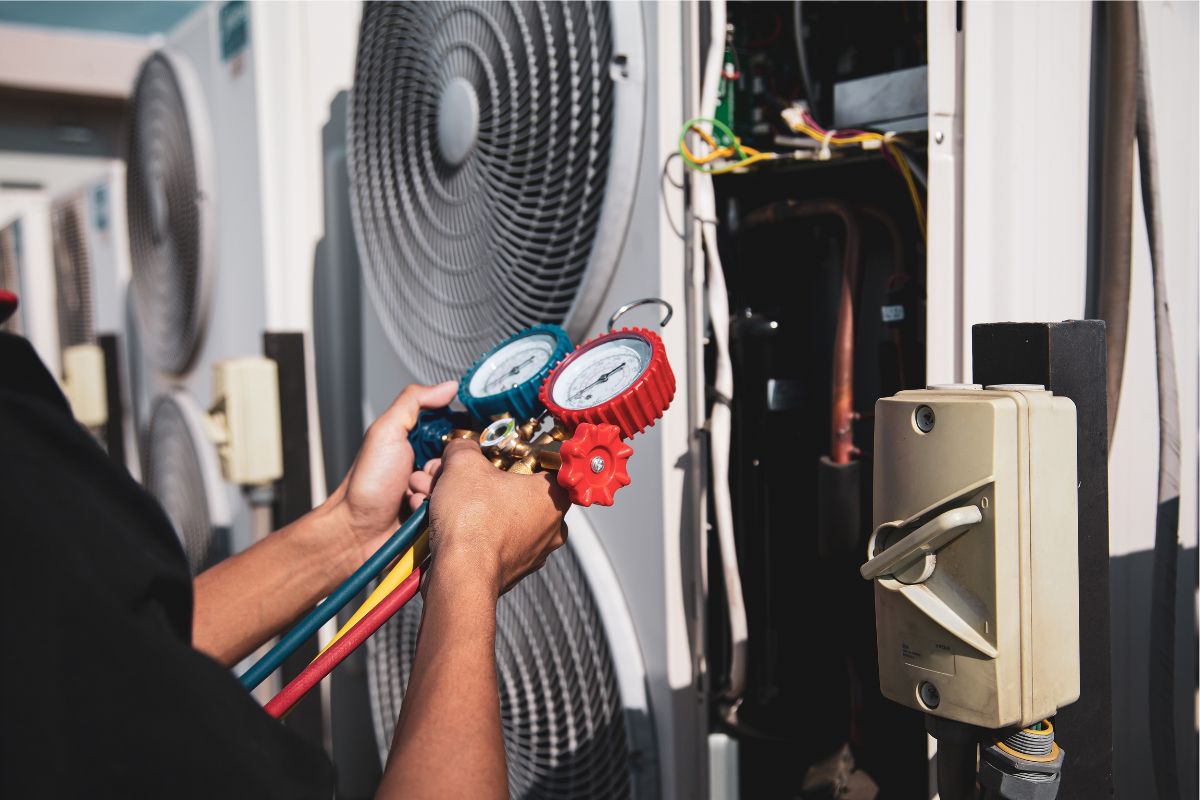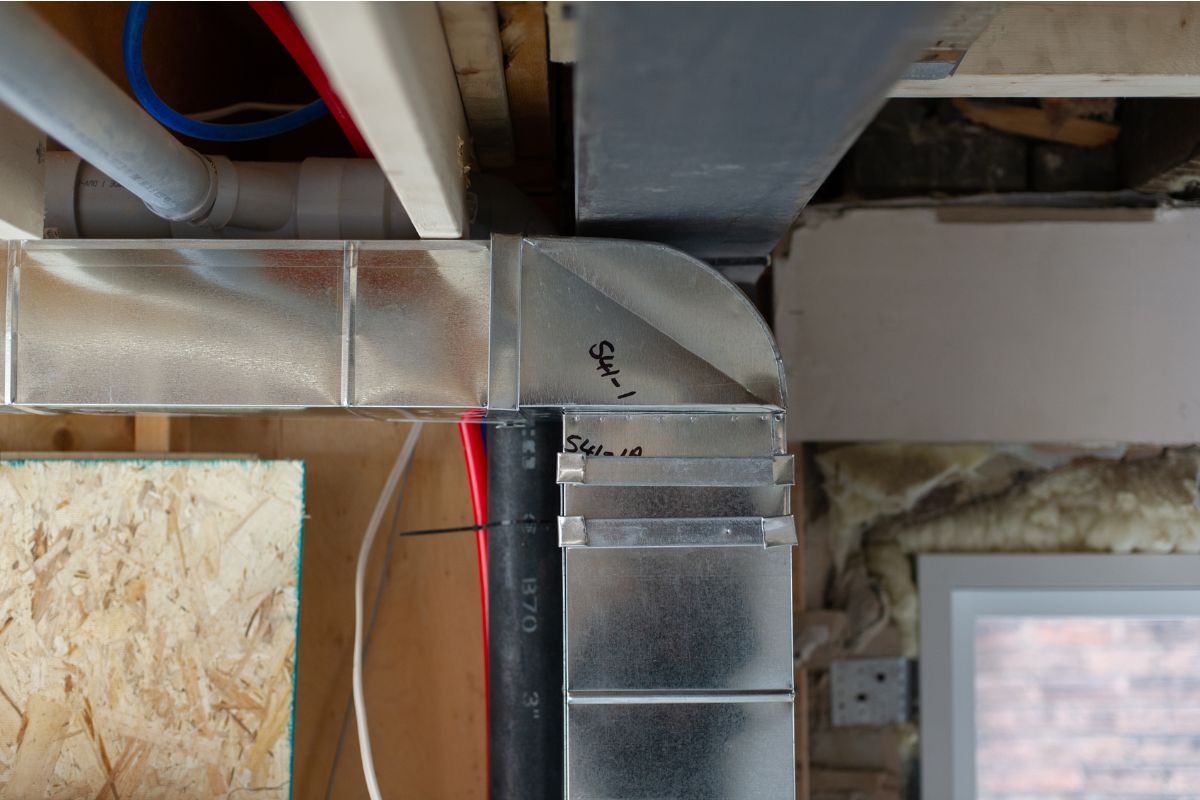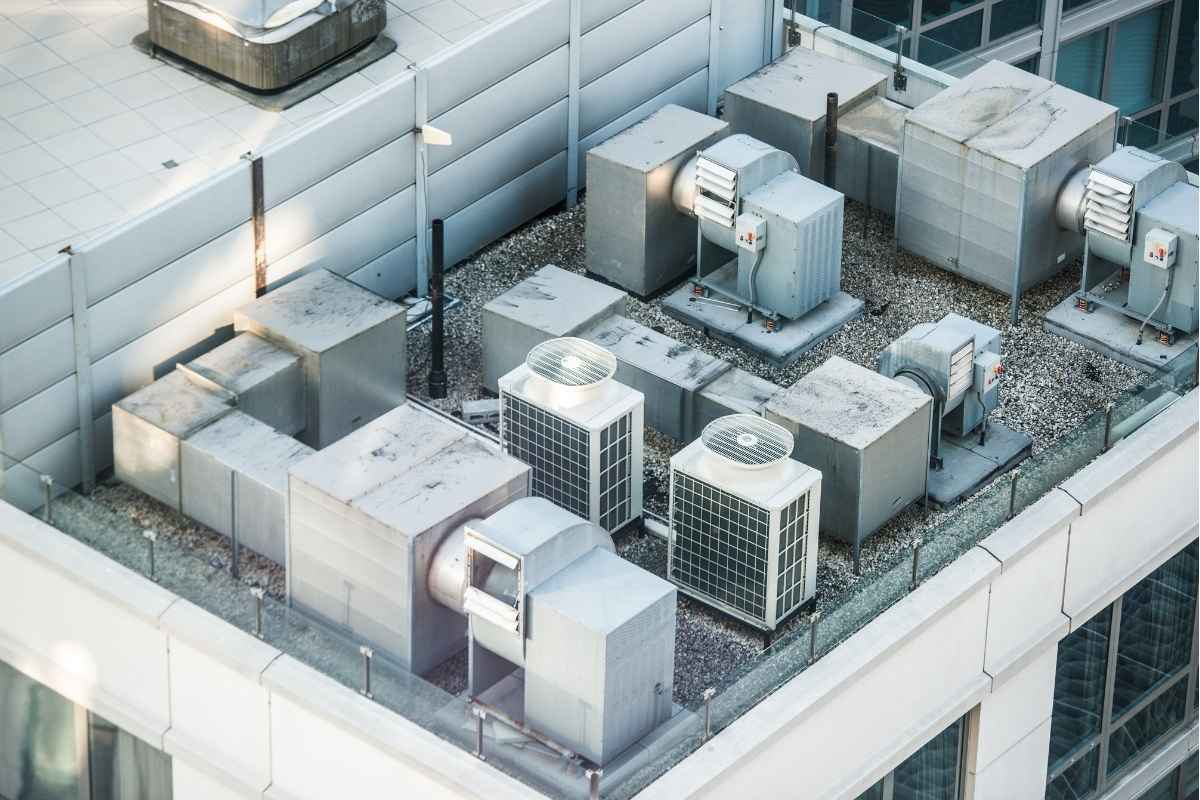Are you tired of dealing with frozen outdoor condensers during the winter months? We understand the frustration of having your HVAC system suddenly stop working due to frozen condensers. It can be expensive and time-consuming to fix, not to mention the discomfort of living in a cold space. Luckily, there are several preventative measures you can take to avoid this issue altogether.
In this post, we will explore the various causes of condenser freezing and provide you with practical tips on how to prevent it from happening. By following these steps, you can ensure that your HVAC system continues to operate efficiently all year round, saving you both money and headaches. Get ready to say goodbye to frozen condensers and hello to a warm and comfortable space.
Keep condensers clear of debris and snow – Make sure the area around your air conditioner condenser is clear of leaves, grass clippings, sticks and snow. A blocked condenser can’t operate efficiently.

Outdoor air conditioner condensers are an essential component of your HVAC system, and keeping them running smoothly is crucial for maintaining indoor comfort. One common problem that property owners face during the winter season is freezing condensers. Fortunately, this issue can be avoided with proper maintenance and care. The first step in preventing your condensers from freezing is to keep them clear of any debris and snow.
A blocked condenser can’t dissipate heat properly, resulting in frost and ice buildup. To avoid this, make sure to clear any leaves, grass clippings, sticks, and snow from the area around your condenser. This will ensure that your unit runs smoothly and efficiently all winter long. Don’t neglect your condensers — taking proper care of them will improve your unit’s performance and extend its lifespan.
Routinely inspect fins and coils – Check condenser coils and fins monthly and remove any dirt, dust or debris using a soft brush. Damaged fins reduce heat transfer capability.
One of the most crucial maintenance tasks is the routine inspection of the condenser coils and fins, which should be done at least once a month. Dirt, dust, and debris can accumulate on the coils and fins, reducing their heat transfer capability and causing freezing issues. One of the best ways to clean the condenser is by gently brushing the surface with a wire brush to remove any unwanted particles.
Furthermore, defective fins should be fixed or replaced to enhance airflow and reduce the likelihood of condenser freezing. Regular maintenance of your condenser is key to ensuring it remains in good working condition throughout its lifetime.
Trim back vegetation – Plants and bushes near condensers should be trimmed back at least 3 feet to allow for proper airflow.
Another way to prevent your condensers from freezing include getting rid of vegetation around them. Plants and bushes should be at least three feet away to ensure there’s proper airflow around the unit. This may seem like a small task, but it can make a significant difference in keeping your condensers running smoothly.
Replace old filters regularly – Dirty air filters block airflow and make the system work harder, increasing risk of freezing. Change filters every 30-60 days.
To keep your outdoor condensers working efficiently and prevent freezing, regular maintenance is key. One crucial step to take is to change the air filters in your system every 30-60 days (2-3 months).
Dirty filters can block airflow and put extra strain on your system, leading to an increased risk of freezing. Replacing old filters regularly will ensure that air flows freely and smoothly, helping to keep your condensers functioning as they should. By staying on top of routine maintenance tasks like filter changes, you can extend the lifespan of your HVAC system and keep it running smoothly for years to come.
Ensure proper refrigerant levels – Low refrigerant levels are a common cause of freezing condensers. Have refrigerant level checked to maintain optimum operating temperature.
Keeping proper refrigerant levels is essential to maintaining the condensers’ optimum operating temperature. Low refrigerant levels often lead to freezing problems. It’s best to have the refrigerant levels checked regularly by a professional to ensure your outdoor condensers remain in peak condition.
In conclusion, taking care of your air conditioner condenser is essential to ensure that it runs smoothly and efficiently. Remember to routinely inspect the fins and coils, trim back vegetation, replace old filters regularly, and consider using a protective coil cover. And most importantly, don’t forget to keep the unit powered on during winter months to avoid freezing. These simple preventative measures will not only save you money on repair costs but also increase the lifespan of your unit.
Combating frozen condensers with Air Ideal
If you do encounter any issues with a frozen condenser, whether it’s due to low refrigerant levels or debris build-up, Air Ideal is here to help. Our team of professionals is well-equipped and experienced in handling all types of frozen condenser problems.
To learn more about our services, please visit our website and contact us today for more!



